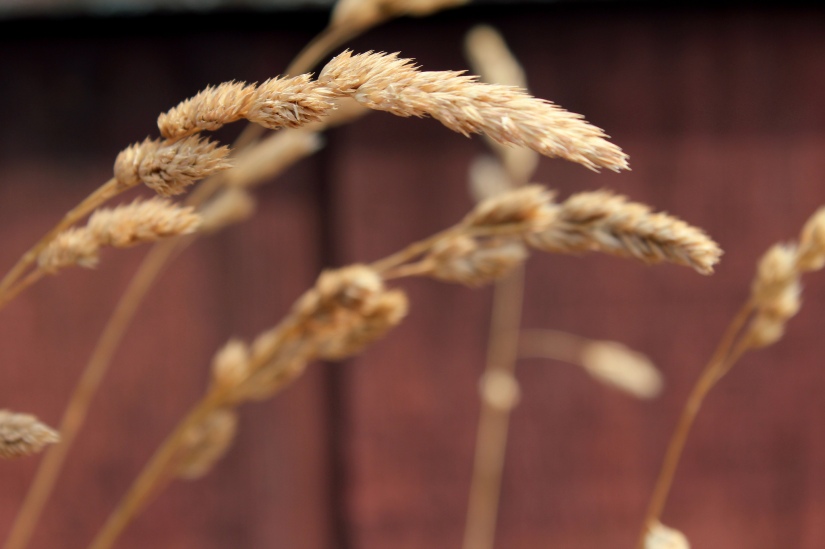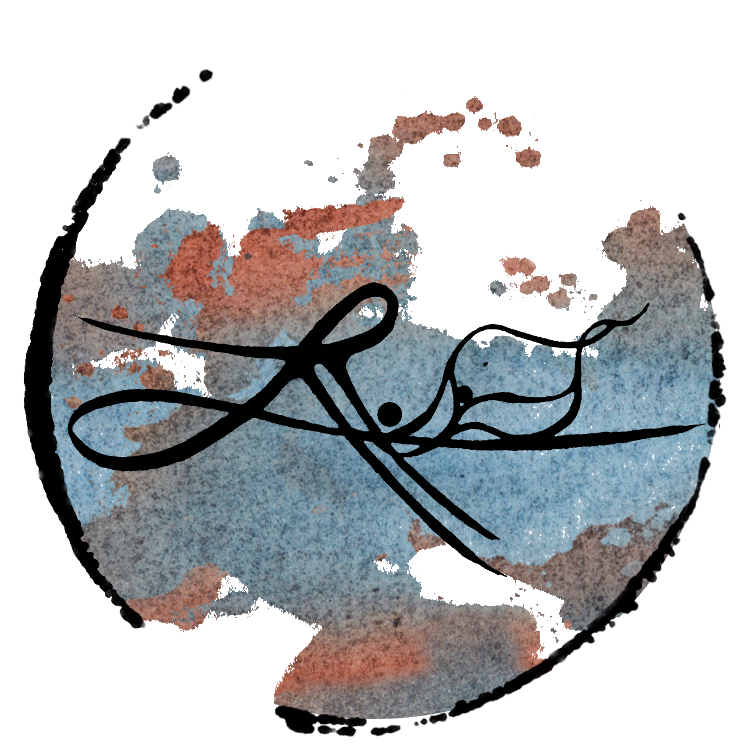For me, today, the saying, “I don’t want to work, I just want to bang on the drum all day”… is not a metaphor.
After all, it’s Lughnasadh — a holy day, the first of the harvest festivals — and I am practically salivating in anticipation of this evening’s festivities. Nothing fancy, just great food (including hand-picked wild blackberries that we harvested from along the bike path that runs through our neighborhood!), silly songs, and a simple ritual in the local park to celebrate the season and honor the land.

Often, I find it hard to concentrate on work on holy days, and of course it’s even harder when that day happens to be a gorgeous, sunny Friday in late summer with the lazy hum of the bees and the idle meanderings of the butterflies whispering, Slow down, take your time, don’t push so hard, it’ll all be fine…
So I wasn’t planning on doing much work today, let alone blogging. But then I came across this post by Merhamet Miller, exploring themes of hard work, hope and sacrifice during this season of harvest — and what it means for Pagans living in the Deep South of the United States, who not only struggle with the summer’s intense heat and the land’s unyeilding clay, but also with the legacy of religious intolerance and fear that have kept them from being able to freely and openly practice their faith for so long. She writes:
I ingest the bread, and I look at the people and enjoy that air conditioning, and see the roof over our heads and I personally know some of the Clergy and Leaders that went before me making sacrifices, watering our souls for hours when we were parched, planting in the stony soil and despite obstacles yielding generations and generations of a Pagan community. We have become so prolific and so scattered we forget, that in 1991 one of our own marched with snipers at his head for our rights. We have become so prosperous we forget that one of our own went to court 7 or more times to just have the right to have an occult store in our town. We forget the sacrifices made, so that we could have this building. We do not look at the Clergy standing in the middle of the Circle as farmers, gardeners, people who are planting their seeds under harsh conditions…but they are. They must have incredible “green thumbs”.
Over the past few weeks, Jeff and I have had many occasions to remark just how amazingly lucky we are. This afternoon, Jeff will be leaving work early in honor of Lughnasadh — his boss not only knows about his Pagan spirituality and supports Jeff taking time off to celebrate the holy days, but often enjoys asking him about his plans and sharing stories about his own experiences of being inspired by nature. This evening (barring a thunderstorm that might be headed our way!), Jeff and I will head back to the local park where, only a week ago in honor of the new moon, we held a small ritual with candles, incense, libations and prayer — and where not a single person stopped to harass us or accost us for performing this Pagan rite in public. Later this year, we’ll celebrate a multi-faith winter solstice ritual with our extended family (after which Jeff’s awesome aunt might write an endearing blog post bragging about it to her fellow Christians). We are so incredibly fortunate to be surrounded by loving, supportive people and to live in a part of the world where our spiritual practices are accepted as a valuable and meaningful part of who we are.

In Druidry, Lughnasadh is a time for the community to come together in celebration and playful competition, to take a moment to rest from the labor of the summer’s work in the fields and enjoy the first fruits of that labor, to show off the skills and talents that we’ve been cultivating all year. The gods know, we spend enough time in this society with our noses to the grindstone! Even when that work is joyful and fulfilling… it’s still work. So this holy day is a time for playfulness and relaxation, a moment to pause during what is for many the peak of summer’s heat — to seek the relief of cool shade, sweet mead, strong beer and the cheer of good company.
But it is also a time to honor the sacrifices of those who have come before us and made this good life possible. The festival is named for the Irish god Lugh, who established the holiday as a funerary rite in honor of his foster-mother, the goddess Tailtiu, after she died of exhaustion while clearing the plains of Ireland for agriculture. It is easy to see in this story parallels to other grain-goddess figures who have blessed the land through their loving sacrifice — Demeter, grieving the loss of her daughter to death; Selu, Corn Mother of the Cherokee, instructing her sons to drag her corpse across the fields so that new life may spring from it to feed her progeny. Right now in my life, I know several women who are struggling with grief and depression, a sense of exhaustion, a lurking hopelessness. Lughnasadh is not only a time to celebrate the bright strength and impressive skill of successful work, but to embrace the darker side of work: the fear that all that we are working for will ultimately fail us; the fear that our work will not be enough to overcome scarcity, insecurity and injustice; the fear that the products of our work will be consumed thoughtlessly or mindlessly wasted, that we ourselves will be utterly used up, driven to the point of exhaustion, left at last to be forgotten when we are no longer considered “productive” members of society.
Strangely enough, I think that it is this very acknowledgement of fear and loss during the most fruitful time of the year that marks this as a holy season. It is this mingling of love and sorrow, hope and grief that transforms the cycles of production and consumption into something more: a sacred harvest. When we forget the hard work of our ancestors, when we distance ourselves from the sweat, blood and tears that connect us to the living reality of those who have come before us, when we anesthetize ourselves to the grief we feel at the struggles they faced and the sacrifices they made — that is when we risk becoming mere consumers. Grief serves a sacred purpose, for we cannot grieve what we have not loved. Grief is one of the fruits of love, even as joy and prosperity are the fruits of labor.
This acceptance of death, loss, grief and fear runs through all of the harvest festivals — the ghouls and ghosts of Samhain, the balancing of light and dark on the equinox — but it is perhaps during Lughnasadh, when the sun is still high and the harvest is just beginning, that we most need to see grief as a necessary aspect of the work that we do. The afternoons are hot, the storms roll over the landscape, the berries ripen, the wheat and barley rustle in the fields. There is still so much to do. It would be so easy to convince ourselves that we have no time to rest, no time to relax — no time for self-reflection or the grief that it might bring with it.
But the bees hum and the butterflies whisper, Slow down, don’t push so hard, be gentle with yourself for a little while… During the sacred season of Lughnasadh, we can allow ourselves to take a few moments to explore the transformative grace that turns death into life, work into wheat, and grief into gratitude. We can root ourselves in all that it means to be human on this wild holy earth, and remember that part of honoring the work of those who have come before us is to enjoy the gifts of that work in the here and now, the sacred present, with all the gratitude and laughter we can muster.
The world won’t fall apart if we give ourselves time to grieve. The world won’t fall apart if we allow ourselves to be happy.
So bang the drums! And sing the song!
Hoof and Horn, Hoof and Horn
All that dies shall be reborn.
Corn and Grain, Corn and Grain
All that falls shall rise again.

Perfectly lovely! This is my new favorite Pagan holiday. Thanks for sharing it. As I relish the ripeness of the summer’s fat, red tomatoes, I also grieve the fact that my brother is not here to enjoy them with me this year. It all goes together, the darkness and the light, the abundance and the loss.
Love you!
LikeLike
My strategy all along has been to slowly convert you to Druidry by being awesome. 😉 #mwuahahahaha #evillaugh
In all seriousness, I’m really grateful the post spoke to you. 🙂 You are always in our thoughts, and we took some time to honor you and all that you do (as well as Biff’s memory) during our ritual tonight. So you were with us in spirit! Maybe someday soon, you can come for a visit and be with us in person when we celebrate. Pagans always have the best post-ritual potlucks!
LikeLike
Thank you for your inspiring words.
Blessed Be…
LikeLike
I’m so glad this post spoke to you, Sarah. 🙂
LikeLike
We can root ourselves in all that it means to be human on this wild holy earth, and remember that part of honoring the work of those who have come before us is to enjoy the gifts of that work in the here and now, the sacred present, with all the gratitude and laughter we can muster.
I love this. So true. All that dies shall be reborn.
LikeLike
Thanks for your comment, Bill! Sometimes we all need a reminder to enjoy life. 😉
LikeLike
Thank you for this moving piece. We are organic farmers in the mid west and live each and every day that toil you speak of. This year is the first that even in spring with the new lambs born, I felt so deeply thier inevitable death. Today we lost a mama hen who managed to raise a brood of 10 chicks outside of the coop, running wild on the farm. We marveled at her resourcefulness and the miracle of thier making it free from the foxes and racoons. Last night was her last and three of her chicks as well. This fecundity and death are deeply intertwined, braided forever in our footprint in agrictulture and domestication of animals. It is a devistating agreement at best and the only way to hold that grief is to sing it, dance it and make offerings of our prayers and beauty to it. I thought I found a bit of Grief and Praise by Martin Prechtel in your words. He has long been our teacher and mentor in remembering what is indeed the Holies that we feed with our grief and love. Thank you for writing and connecting here.
LikeLike
Wow, Angela, thank you so much for sharing your story! It’s wonderful and inspiring to meet folks who are out there working the land in sustainable and ecologically-conscious ways. I honor the work that you do, and the mindfulness and spirit you bring to it! 🙂
LikeLike
Hi, Allison,
I know this isn’t your newest post, but it is so timely and well-written that I borrowed it for the OBOD website’s Featured Blog of the Month post, http://www.druidry.org/druid-way/resources/druid-blogs/blog-month.
Thanks!
LikeLike
Wow, thank you for featuring me! 🙂
LikeLike